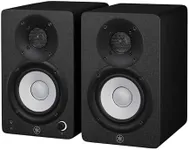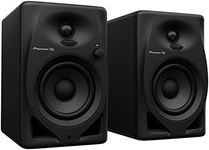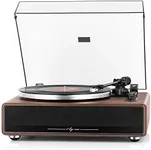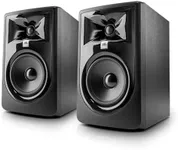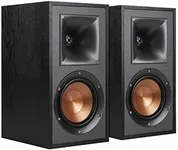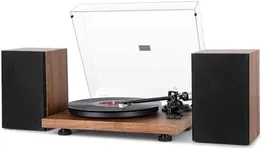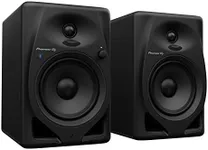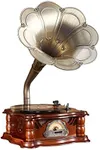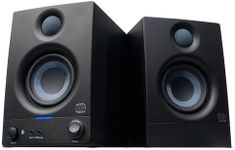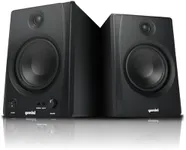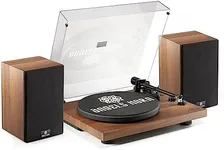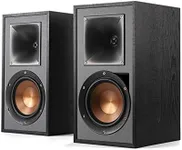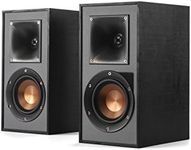Buying Guide for the Best Turntable Speakers
Choosing the right turntable speakers is essential for getting the best sound quality from your vinyl records. The right speakers can make a significant difference in your listening experience, so it's important to understand the key specifications and how they relate to your needs. Here are some important factors to consider when selecting turntable speakers.Power Output (Wattage)Power output, measured in watts, indicates how much power the speakers can handle and how loud they can get. Higher wattage generally means louder and more powerful sound. For small rooms or casual listening, speakers with 20-50 watts may be sufficient. For larger rooms or more immersive listening experiences, you might want speakers with 50-100 watts or more. Consider your room size and how loud you like your music when choosing the right power output.
Frequency ResponseFrequency response refers to the range of sounds the speakers can reproduce, measured in Hertz (Hz). A wider frequency response range means the speakers can produce both very low (bass) and very high (treble) sounds. Typical ranges are 20Hz-20kHz, which covers the full spectrum of human hearing. If you enjoy deep bass or high treble, look for speakers with a wide frequency response. However, for general listening, a standard range will suffice.
Speaker Type (Active vs. Passive)Active speakers have built-in amplifiers, meaning they can be connected directly to your turntable without needing an external amplifier. Passive speakers require an external amplifier to work. Active speakers are more convenient and easier to set up, making them a good choice for beginners or those with limited space. Passive speakers offer more flexibility and potential for higher sound quality, but they require additional equipment and setup. Choose based on your technical comfort level and space availability.
Connectivity OptionsConnectivity options determine how you can connect your turntable to the speakers. Common options include RCA, Bluetooth, and optical inputs. RCA is the traditional analog connection and is compatible with most turntables. Bluetooth allows for wireless streaming from other devices, adding versatility. Optical inputs provide high-quality digital connections. Consider what devices you want to connect and choose speakers with the appropriate inputs.
Size and DesignThe size and design of the speakers can affect both sound quality and how they fit into your space. Larger speakers generally produce better sound, especially in terms of bass, but they take up more room. Smaller speakers are more compact and easier to place but may not deliver the same audio performance. Additionally, consider the aesthetic design to ensure the speakers match your decor. Balance your need for sound quality with the available space and your personal style preferences.
Brand and ReviewsThe brand and reviews of the speakers can give you an idea of their reliability and performance. Established brands often have a reputation for quality and customer service. Reading user reviews can provide insights into the real-world performance and any potential issues. Look for speakers from reputable brands with positive reviews to ensure you are making a reliable choice. This can help you avoid potential disappointments and ensure a satisfying purchase.
